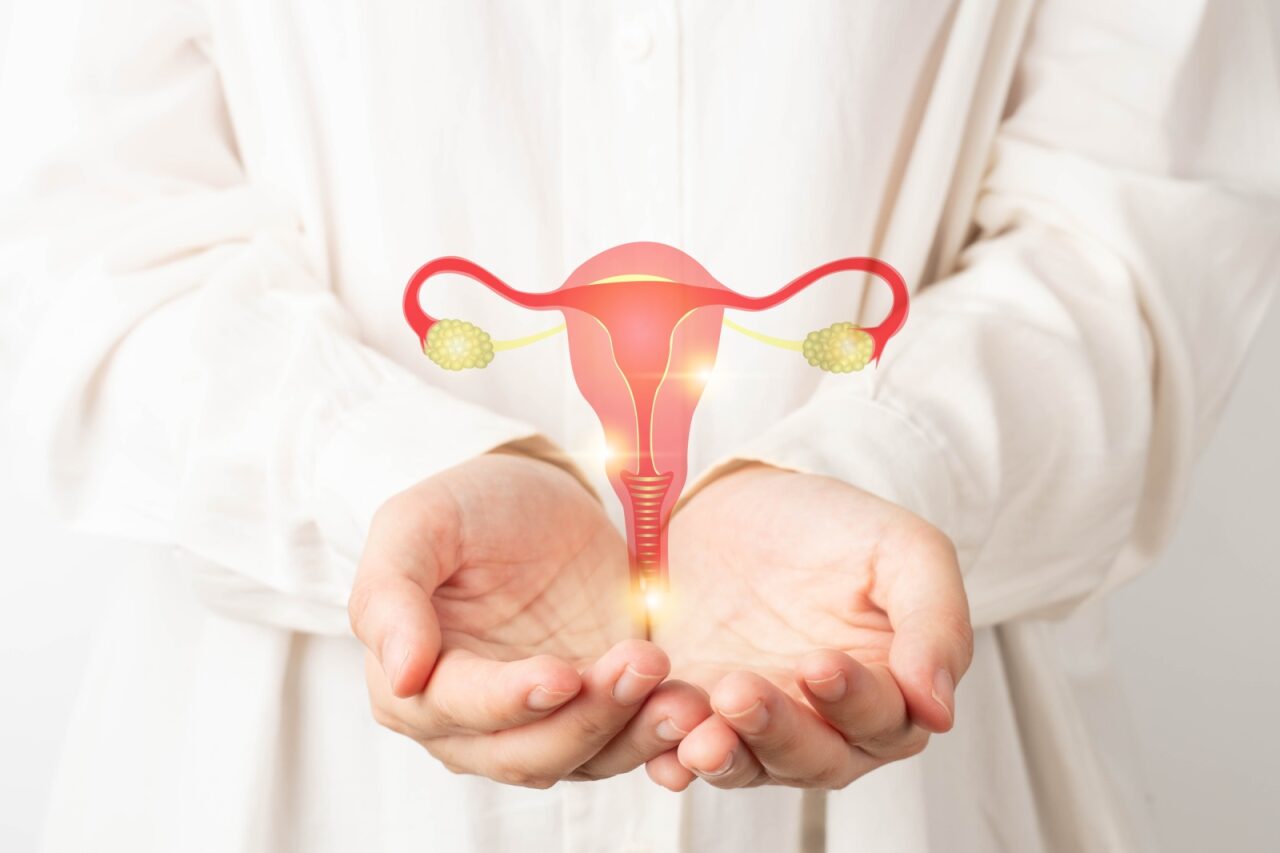A hormonal disorder, Polycystic Ovarian Disease (PCOD), also known as Polycystic Ovary Syndrome (PCOS), affects women of reproductive age. It’s characterised by an imbalance of reproductive hormones, leading to various symptoms & potential long-term health complications.

PCOD affects the ovaries, causing excessive production of male hormones (androgens). This hormonal imbalance disrupts normal ovarian function, resulting in irregular menstrual cycles, infertility, and small ovarian cysts. The exact cause, most of the time, remains undetermined but likely involves genetic and environmental factors. Insulin resistance is common in women with PCOD, contributing to hormonal imbalance and symptom exacerbation.
Common symptoms include:
Symptom severity varies among individuals, with some experiencing mild or no symptoms.
While the exact PCOD problem causes are unclear, potential factors include:
PCOD is complex, and underlying causes may differ among individuals.
Untreated PCOD can lead to:
Proper medical care and treatment are essential to manage symptoms and reduce complication risks.
PCOD is typically diagnosed through:
No single test definitively diagnoses PCOD; healthcare providers consider multiple factors for accurate diagnosis.
Treatment is tailored to individual symptoms and goals, aiming to manage symptoms, regulate menstrual cycles, and reduce long-term complication risks. Common PCOD problem treatment options include:
Surgery- In some cases when conservative methods are no longer effective
A holistic treatment plan should be developed in collaboration with your gynaecologist.
Diet & lifestyle play crucial roles in managing PCOD symptoms. A recommended diet includes:
Adopt a healthy and balanced diet rich in whole foods, lean proteins, complex carbohydrates, and healthy fats. Avoid processed foods, sugary beverages, and foods high in refined carbohydrates and unhealthy fats. Regular exercise & stress management techniques can also help manage PCOD symptoms, says Dr. Geeth Monnappa.
PCOD is a complex hormonal disorder affecting women’s reproductive health and overall well-being. While its exact cause is unknown, it likely involves genetic and environmental factors. Symptoms range from irregular menstrual cycles to more than normal body hair growth and difficulty conceiving.
Untreated PCOD can lead to complications such as infertility, metabolic syndrome, and endometrial cancer. Early diagnosis & proper treatment are essential for symptom management and reducing long-term complication risks. Treatment is individualised and may include lifestyle changes, medications, fertility treatments, or surgery. A balanced diet, active lifestyle routine & stress management techniques play crucial roles in managing PCOD symptoms.
If you suspect PCOD or experience concerning symptoms, consult SPARSH Obstetrics and Gynaecology Hospital in Bangalore for accurate diagnosis and treatment. Our dedicated healthcare professionals provide personalised care and comprehensive treatment plans tailored to individual needs. With the right approach, many females with PCOD can manage their symptoms effectively & lead healthy lives.
The exact cause cannot be determined in most cases but likely involves genetic and environmental factors, including insulin resistance, genetics, obesity, and exposure to certain toxins or endocrine-disrupting chemicals.
Women with PCOD may experience various symptoms and face increased risks of long-term complications if left untreated.
Common symptoms include irregular menstrual periods, excessive hair growth, acne, weight gain, thinning hair, infertility, mood changes, and sleep apnea.
comprehensive approach is recommended, including lifestyle changes, medications, fertility treatments if needed, and stress management techniques. Work closely with a doctor to develop a personalised treatment plan.
Categories: Women & Children
Polycystic Ovarian Disease (PCOD): Overview, Symptoms, Causes and Treatment is available for appointments. Please fill the below form to book an appointment.
|
> Gynaecologists in Davanagere |
|
|
> Gynaecologists in Hassan |
|
Unlock the door to exceptional healthcare, book an appointment with SPARSH Hospital and let your journey to wellness begin.